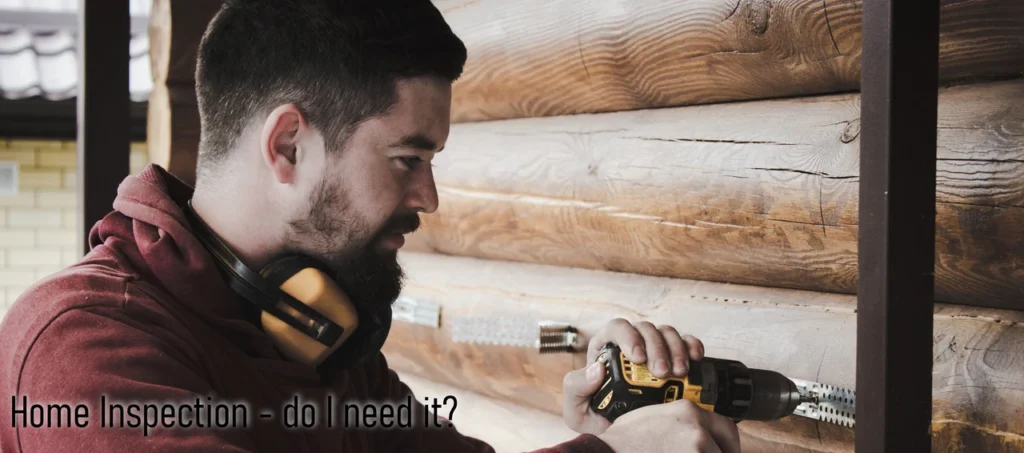No promises, no warranties
The buyer should indeed beware when using an unedited Standard Agreement of Purchase and Sale. In section 13 (the only section on inspections), the standard agreement states that, by signing, the buyer acknowledges that they have had the opportunity to inspect the property by themselves and they are aware that they could have added a requirement for a professional home inspection, but they have chosen not to. This means that even if you had not yet requested a home inspection, by signing the agreement as is, you would be waiving your right to obtain one going forward.
Why might you consider a home inspection? The standard agreement does not require the seller to make any warranties about the state of the property except that, as far as they know, no insulation containing urea-formaldehyde has been used in the property. Other than this very limited warranty and unless the property undergoes “substantial damage” such as in the case of a fire, the buyer shoulders all the risk regarding the state of the property. Since purchasing a home represents the most significant financial decision of an individual’s life, nobody wants a situation where, after a hefty down payment, they end up solely responsible for unexpected issues that could cost thousands to repair.
What are the benefits and limitations of a home inspection?
While obtaining a home inspection shouldn’t be too difficult, there are some aspects to look out for. Home inspectors are not currently regulated in Canada. Unfortunately, this means that almost anyone with any amount of experience can call themselves an inspector. When seeking an experienced professional, it is recommended to first ask trusted acquaintances for recommendations. Your realtor may suggest a home inspector but proceed with caution. It is in the realtor’s interest that the property deal comes to a close regardless of how thoroughly the property was inspected. Ideally, your realtor will provide a list of reputable home inspectors and give you time to conduct your own background checks. Other sources of responsible inspectors include:
- Ontario Association of Home Inspectors,
- Ontario Association of Certified Home Inspectors,
- Canadian National Association of Certified Home Inspectors,
- Professional Home & Property Inspectors of Canada and
- Canadian Association of Home and Property Inspectors.
Each association holds its members to its own set of professional standards, experience and education requirements. While they do discipline sub-standard performance, membership in each association is entirely voluntary.
Proper, full home inspections can take approximately 2-4 hours and can cost $350-$600. A typical inspection will check the roof, plumbing, heating and cooling systems, electrical, insulation, floors, cabinets, ventilation, etc. However, a regular inspection can only examine surface-level issues. A home inspector will not be able to check for hidden defects inside walls or pipes such as pest damage, mould, asbestos, water contamination, chimneys and sewer lines. Specialized inspectors can be hired for the more difficult areas. The older the property, the higher the likelihood that it will have some major and minor issues. Even newly built properties may require inspections, however, homebuyers are protected by builder and vendor warranties under the Ontario New Home Warranties Plan Act. Given the number of defects that aren’t even covered under a regular home inspection, it stands to reason that, given the amount of risk and responsibility foisted onto the buyer, even a standard inspection is better than none at all.
Should I add a home inspection clause
Sellers are reluctant to include a home inspection clause in their agreement of purchase and sale because, if a dispute arises, it shifts a significant amount of power to the buyer. The 2000 Ontario case of Marshall v. Bernard Place Corp. involved a clause that made the agreement conditional on the buyer receiving a satisfactory report from the home inspector. The seller argued that the reported defects were minor and refused to return the deposit. However, since they signed a contract that hinged on the buyer’s satisfaction, the court held in favor of the buyer. To avoid litigation or negotiation over a home inspection report, such a clause is regularly left out of agreements. Sometimes, as a compromise, the seller will include a clause that states that if the repair costs are minor, the seller has the right to fix the issues and the buyer must remain in the deal. It would be to the buyer’s advantage to add a home inspection clause to their offer and agreement since, without such a clause, the standard agreement makes nearly no warranties and removes their right to an inspection.
What is the future of home inspection in the law?
After years of requests from home inspection associations to regulate the industry, the Ontario government passed the Home Inspection Act in 2017. The Act was expected to enter into force in 2021, however, it has not yet received the necessary Royal Assent. Once in force, the Act will establish a disciplinary committee and set a provincial standard for the licensing and regulation of home inspectors including requiring liability insurance, education, training, and a formal contract with the buyer or seller before conducting an inspection. This will result in improved consumer experience and protection.
Do I have the right of final inspection?
After the visits have been made, the inspection has been conducted, the seller’s belongings have been cleared out, the deal is about to close—what happens if the buyer wants to inspect the property one final time before closing? This type of informal last-minute inspection differs from the right to a home inspection because it may not require a written clause. In the 1979 Ontario case of Harkness v. Cooney (which was more recently upheld in the 2014 B.C. case of Chaston v. Este), the buyer was successful in obtaining the right to a final inspection. (It should be noted that while these judgements are persuasive, they are not binding on other Ontario cases.)
The judges said that the buyer had the right to check that the property remained in the same condition in which they bought it. After all, months could pass between the home inspection and the closing date. In that time, the seller may have made some repairs to the property (as discovered by the inspection report), some new damage may have occurred, the seller may have attempted to remove or replace some of the appliances, or the seller may have been less than careful during the move. The courts believed that the buyer should be allowed to terminate the contract or receive insurance payment if there is substantial damage to the property (except for very minor wear and tear). As the judge in Chaston said, to refuse “would be analogous to purchasing a dozen eggs without an opportunity to first open the carton to ensure none are broken.”
Every situation is different, but our experienced real estate team at BeffaLaw recommends that buyers add a home inspection clause to the Purchase and Sale Agreement. It is in the buyer’s interest to avoid being cornered in a situation where they will have to carry the burden of potentially significant repair costs.
Learn More
Business Charity Child Support community Contracts COVID-19 divorce Estate Planning Family Law immigration Incorporation In The News Not For Profit Postnup Power of Attorney Real Estate Registration separation agreement Sponsorship Startup Taxes Wills Wills & Estates Wills and Estates Work Permit


